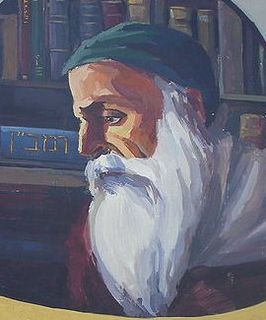A Quote by Hippocrates
There are some arts which to those that possess them are painful, but to those that use them are helpful, a common good to laymen, but to those that practise them grievous. Of such arts there is one which the Greeks call medicine. For the medical man sees terrible sights, touches unpleasant things, and the misfortunes of others bring a harvest of sorrows that are peculiarly his; but the sick by means of the art rid themselves of the worst of evils, disease, suffering, pain and death.
Quote Topics
Art
Arts
Bring
Call
Call Me
Common
Common Good
Death
Disease
Evils
Good
Greeks
Harvest
Helpful
His
Man
Means
Medical
Medicine
Misfortunes
Misfortunes Of Others
Others
Pain
Painful
Pleasant Things
Possess
Practise
Rid
Sees
Sick
Sights
Some
Sorrows
Suffering
Terrible
Them
Themselves
Things
Those
Unpleasant
Use
Which
Worst
Related Quotes
Every man is of importance to himself, and, therefore, in his own opinion, to others; and, supposing the world already acquainted with his pleasures and his pains, is perhaps the first to publish injuries or misfortunes which had never been known unless related by himself, and at which those that hear them will only laugh, for no man sympathises with the sorrows of vanity.
So if the worth of the arts were measured by the matter with which they deal, this art-which some call astronomy, others astrology, and many of the ancients the consummation of mathematics-would be by far the most outstanding. This art which is as it were the head of all the liberal arts and the one most worthy of a free man leans upon nearly all the other branches of mathe matics. Arithmetic, geometry, optics, geodesy, mechanics, and whatever others, all offer themselves in its service.
It [The Gesundheit Institute] also won't separate the healing arts. All of them work together - traditional medicine and surgery with acupuncture, homeopathy, etc. We want to make the hospital a place a person can't wait to come to, whether they are working there or being there as a patient. Because we are interested in promoting wellness, we will integrate medicine with performing arts, arts and crafts, agriculture, recreation, nature, and social service. Those are some skeletal parts.
There is (gentle reader) nothing (the works of God only set apart) which so much beautifies and adorns the soul and mind of man as does knowledge of the good arts and sciences . Many arts there are which beautify the mind of man; but of all none do more garnish and beautify it than those arts which are called mathematical , unto the knowledge of which no man can attain, without perfect knowledge and instruction of the principles, grounds, and Elements of Geometry.
Feminist art is not some tiny creek running off the great river of real art. It is not some crack in an otherwise flawless stone. It is, quite spectacularly I think, art which is not based on the subjugation of one half of the species. It is art which will take the great human themes -love, death, heroism, suffering, history itself -and render them fully human. It may also, though perhaps our imaginations are so mutilated now that we are incapable even of the ambition, introduce a new theme, one as great and as rich as those others -should we call it joy?
... so large a portion of those who hold much capital, instead of using their various advantages for the greatest good of those around them, employ the chief of them for mere selfish indulgences; thus inflicting as much mischief on themselves, as results to others from their culpable neglect. A great portion of the rich seem to be acting on the principle, that the more God bestows on them, the less are they under obligation to practise any self-denial, in fulfilling his benevolent plan of raising our race to intelligence and holiness.
Indeed, we need not look back half a century to times which many now living remember well, and see the wonderful advances in the sciences and arts which have been made within that period. Some of these have rendered the elements themselves subservient to the purposes of man, have harnessed them to the yoke of his labors and effected the great blessings of moderating his own, of accomplishing what was beyond his feeble force, and extending the comforts of life to a much enlarged circle, to those who had before known its necessaries only.
Dreams surely are difficult, confusing, and not everything in them is brought to pass for mankind. For fleeting dreams have two gates: one is fashioned of horn and one of ivory. Those which pass through the one of sawn ivory are deceptive, bringing tidings which come to nought, but those which issue from the one of polished horn bring true results when a mortal sees them.
A saying from the area of Chinese medicine would be appropriate to mention here: "One disease, long life; no disease, short life." In other words, those who know what's wrong with them and take care of themselves accordingly will tend to live a lot longer than those who consider themselves perfectly happy and neglect their weakness. So, in that sense at least, a Weakness of some sort can do you a big favor, if you acknowledge that it's there.




































